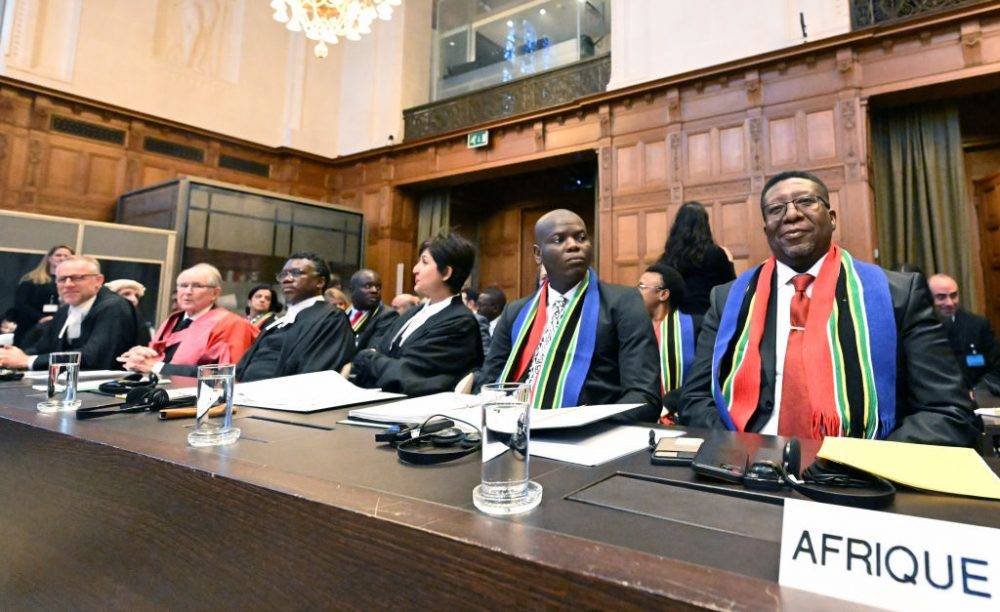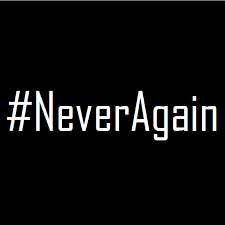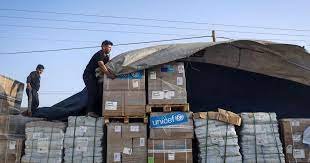
Credit: Mail and Guardian
In a landmark development with global implications, the International Court of Justice (ICJ) is poised to deliver its verdict today on South Africa’s petition for an interim injunction against Israel. The proceedings, which took place two weeks ago at The Hague, mark the most significant human rights case since the Nuremberg Trials following the Holocaust in 1948. This case has captured the attention of not just South Africa but the entire world, reflecting the gravity of the situation.

The recent months have been a harrowing period that shook the conscience of humanity. Images depicting the intense warfare in Gaza inundated timelines and ‘For You’ pages across various online platforms, sparking a widespread critical inquiry into the root causes of the conflict in Palestine. Against this backdrop, South Africa presented its case on January 11, 2024, setting the stage for a momentous legal confrontation. Since the matter was instituted, other states have instituted similar proceeding with the the International Criminal Court (ICC) and expressed support for South Africa in its application at the ICJ. While these events may not exert a direct influence on the impending ICJ ruling, their ripple effects extend far beyond the courtroom, carrying significant geopolitical implications for the nature and consequences of the conflict in Palestine. The international community has closely observed the developments since South Africa’s presentation of the case, and the indirect repercussions are poised to shape the broader human rights landscape.
Merits and Prospects of Success
Plausible Violation of the Genocide Convention 1948
South Africa submitted its request for provisional measures on Dec. 29, 2023, amidst escalating humanitarian concerns in Gaza. In its petition to the ICJ, South Africa strongly condemns the actions of Hamas. The country’s foreign policy objective is articulated as the pursuit of a lasting peace between Israel and the State of Palestine, envisioning two states coexisting within internationally recognized borders based on those existing on June 4, 1967. From a legal standpoint, South Africa accuses Israel of breaching its obligations under the Convention Against Genocide. It’s crucial to clarify that, despite certain headlines suggesting otherwise, South Africa’s case at the ICJ is in its preliminary stage. The court is not currently tasked with determining whether Israel has committed, sanctioned, or incited genocide. Such a determination, if it occurs, would likely be years away.
At this initial phase, South Africa is seeking an order to restrain Israel from continuing its military operations in Gaza. The basis for this request is South Africa’s contention that the allegations of genocide are plausible, and there exists a risk of irreparable harm if the court doesn’t intervene promptly. This strategy aligns favourably with South Africa’s position, as the duty to prevent doesn’t demand conclusive proof; rather, it requires a demonstration that the observed actions in the conflict may lead to genocide and must be averted.
Jurisdiction: Dispute vs “Unispute”
The ICJ is concerned with establishing the legal responsibility of states, not individuals. The latter task falls to domestic courts and to the International Criminal Court (ICC), which also sits in The Hague. The ICC is currently investigating alleged crimes committed by individuals on both sides of the situation in Israel and Palestine, subject to its jurisdictional limitations (which are contested).
To establish jurisdiction in the provisional measures stage, South Africa must present a “prima facie” case demonstrating violations of the Genocide Convention. It’s mutually acknowledged that the ICJ lacks jurisdiction to determine whether Israel is involved in war crimes or crimes against humanity. South Africa submits that a clear dispute exists between itself and Israel regarding Israel’s potential violation of the Genocide Convention in Gaza, a concern that had been expressed on separate platforms and occasions. Israel counters that a dispute, as defined by ICJ case law, isn’t solely established by this disagreement and that there is no material dispute between the states.
Due to Israel’s objection to the dispute and thus the court’s jurisdiction, it has urged the removal of the case from the General List, essentially seeking its dismissal. However, given the “capable of falling within the scope” standard, the court is unlikely to comply. Notably, the Genocide Convention prohibits “direct and public incitement to commit genocide,” and a prima facie case of failure to prevent and punish incitement doesn’t hinge on the actual commission of genocide.
Provisional Measures

South Africa has petitioned the court for interim measures designed to prompt Israel to “refrain from committing genocide, prevent genocide, and punish the perpetrators of genocide” as part of the ongoing legal proceedings. These provisional measures are aimed at preventing a further deterioration of the situation. A few of South Africa’s specific requests include “an immediate cessation of military operations in Gaza, a restraint on any actions advancing military operations by groups under Israel’s control, the implementation of reasonable measures to prevent genocide against Palestinians, avoidance of actions falling under Article 2 of the Genocide Convention, assurance of access to humanitarian aid for essential needs..”
The provisional measures are meant to protect the rights claimed by the involved parties, and it’s important to underline that the court’s final judgment is confined to alleged violations of the Genocide Convention. The court’s responsibility includes evaluating the plausibility of the rights asserted by South Africa and scrutinizing the adequacy of the connection between these rights and the specific provisional measures requested. In this phase, the court faces the intricate task of weighing competing narratives of the parties, and the objectivity of various fact-finding missions, including the United Nations Human Rights Commission Report and the work of the Rapporteurs. Israelis find it inconceivable that self-defence against Hamas is characterized as genocide. Meanwhile, Palestinians and the global community argue that the failure to adhere to principles of proportionality and humanitarianism has resulted in a crisis that surpasses the threshold of plausibility. This divergence in perspectives highlights the complexity of the issues at hand and the challenges the court faces in arriving at a just and equitable decision.
As we wait . . .
The ICJ consists of a 15-judge panel that handles disputes between countries and provides advice to U.N. agencies. Countries taking part in an ICJ case can also add an ad hoc judge of their nationality if there isn’t already one on the bench, hence both South Africa and Israel each appointed a judge to assemble a bench of 17 Judges. The decision does not have to be unanimous, only that it be a majority.
Regardless of the outcome of the judgment, South Africa has undeniably achieved a significant victory by elevating the conflict in Palestine to the forefront of the judicial record. In its extensive 85-page submissions, South Africa concludes by emphasizing the ICJ’s responsibility to protect all human rights and ensure equal accountability for perpetrators. This call is particularly poignant considering historical shortcomings in Rwanda, Srebrenica, and the Rohingya crisis [71, paragraph 30 of the pleadings]. The case also holds a unique position in potentially shaping crucial elements of international criminal law, influencing the duty to prevent crimes against humanity, considerations of self-defence, proportionality, and jurisdiction.
It’s noteworthy that while ICJ decisions are legally binding and lack an appeal process, the court’s authority extends only to U.N. member states or nations accepting its jurisdiction through alternative mechanisms, such as treaty clauses. Although judgments are theoretically binding, real-world dynamics reveal instances where multiple countries like Russia in 2022 and the U.S. in 1986 and 2018, who chose to disregard ICJ orders. This underscores the complex interplay between international legal decisions and the practical limitations in ensuring universal compliance.
Follow live impressions of the judgment on X @mosaleteane
Lets catch up on the next post,
Mosa